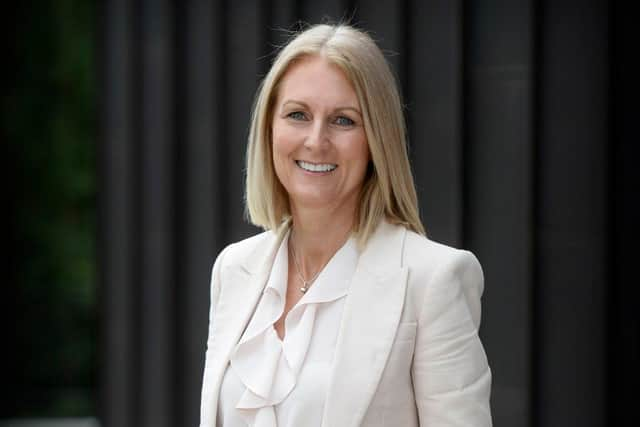Don’t delay, digital VAT is here for the smallest of NI businesses
and live on Freeview channel 276
From April 1 2022, VAT registered businesses in the UK with a turnover below the current VAT registration threshold of £85,000 will be required to meet the conditions for Making Tax Digital for VAT.
Effectively this means that VAT returns must also be compiled and then submitted to HMRC using software which connects to HMRC’s systems via a software link.
Advertisement
Hide AdAdvertisement
Hide AdAlthough this change is not completely new (VAT registered businesses with turnover above £85,000 have been required to meet these conditions since April 2019), this is a significant step change for the smallest VAT registered businesses in the UK many of whom don’t currently use software of any type to keep their business records or file VAT returns. These businesses have also borne the brunt of the Covid-19 pandemic, and many are struggling with the impact and changes arising out of the UK’s departure from the EU.


However, for those who have already embraced the changes, many have reported Making Tax Digital as having several benefits including a reduction in the potential for mistakes, less paperwork, and the ability to see tax data more readily.
HMRC tells us that in January 2022 around one third of affected businesses had already voluntarily signed up to Making Tax Digital for VAT. But that leaves the other two thirds of businesses with just a matter of months before they need to file their first VAT return under MTD for VAT. However,
action is still needed as soon as possible as the digital VAT recording keeping requirement will immediately start for some businesses from April 1 2022, depending on the VAT return period of the business.
Advertisement
Hide AdAdvertisement
Hide AdHMRC have also told us that a large proportion of these businesses do not have an accountant to help them navigate this change so many affected businesses will be completely unaware of this significant change and will no longer be able to file VAT returns using the current process of filing returns via the Government Gateway.
In recent months HMRC has been busy writing to affected businesses to make them aware and urge them to prepare for this significant change. No “soft landing” is being planned to ease in the changes meaning businesses could face VAT surcharges/penalties if they don’t file in the right format or keep the necessary digital VAT records.
So what do these businesses need to do? The first step is to talk to an accountant and get signed up to Making Tax Digital for VAT. They will be able to advise you on not only the right software package for your business but can also provide crucial advice on exactly what VAT records must be kept digitally.
Don’t be tempted to try and do this yourself – Making Tax Digital for VAT is the first in a series of forthcoming tax changes affecting small businesses. An accountant will be able to help not just with change but changes which begin to take effect from April 2023 on how self-employed businesses are assessed from a tax perspective. And, from April 2024 Making Tax Digital is being extended to income tax meaning many self-employed individuals and landlords must begin making quarterly filings of business information to HMRC; an even more significant change.
For now, the advice is don’t delay. Digital software will enable you to keep your records up to date and critically information will be in real-time. That in itself has several benefits.